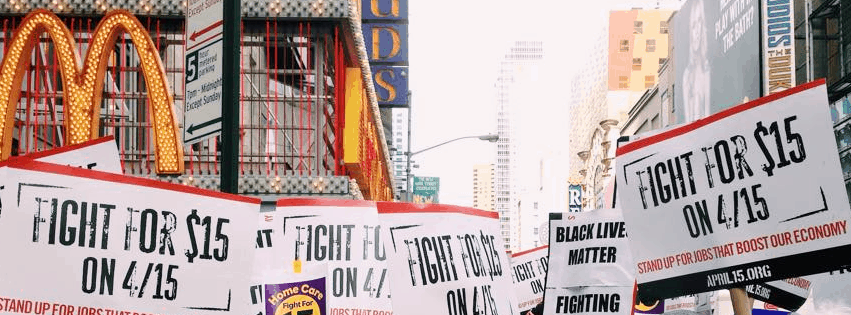
Sunah Chang is a student at Harvard Law School.
In today’s news and commentary: the EEOC finalizes its guidance on workplace harassment, unionized hotel workers prepare for May Day rallies, and the Fight for $15 campaign rebrands as Fight for a Union.
Yesterday, the EEOC issued its finalized guidance on preventing harassment in the workplace. This guidance marks the first time since 1999 that the EEOC has updated its anti-harassment guidelines for employers. Notably, in light of the Supreme Court’s 2020 decision in Bostock, the new guidance encompasses protections for LGBTQ+ workers, including protecting the rights of employees to access a bathroom consistent with their gender identity and protecting employees from repeated and intentional misgendering. The guidance also states that workplace harassment based on an employee’s reproductive health-related decisions is prohibited under Title VII. Furthermore, the guidance addresses the growth of virtual work environments and clarifies how harassment can manifest in remote workplaces.
The final guidance was approved by EEOC commissioners by a 3-2 vote along party lines. Conservatives, including Republican EEOC Commissioner Andrea Lucas, have spoken out against the guidance as impinging on the freedom of speech and religion of employees and employers. Accordingly, the guidance is expected to face legal challenges, particularly based on religious discrimination claims.
In other news, 40,000 unionized hotel workers across the United States and Canada will hold rallies on May Day as talks for a new contract begin with Marriott, Hilton, and Hyatt. As the hotel industry enjoys a new boom in travel and tourism, hotel workers, who are still working under pandemic-era contracts, are demanding pay raises. Hotel workers will participate in rallies and marches in Boston, Baltimore, New Haven, Toronto, Honolulu, and other cities.
In more union news, the Fight for $15 campaign, a coalitional movement that began in 2012 to demand better pay for low-wage workers, has rebranded itself as “Fight for a Union.” Originally launched as “Fight for $15 and a Union,” the campaign pivoted to focus on its demand for a $15 minimum wage and gained successes in raising minimum wage laws across numerous states and cities. In light of these successes (and perhaps in light of the emerging discourse surrounding the inadequacy of a $15 minimum wage), the movement’s organizers have rebranded the campaign to “Fight for a Union” in order to focus on its “demand for every worker to have a union.” In its rebranding announcement video, the campaign stated: “From the beginning, we were speaking out, organizing, and striking for a union. As workers, we fight for a thriving wage, not just a living wage.”






Daily News & Commentary
Start your day with our roundup of the latest labor developments. See all
July 4
The DOL scraps a Biden-era proposed rule to end subminimum wages for disabled workers; millions will lose access to Medicaid and SNAP due to new proof of work requirements; and states step up in the noncompete policy space.
July 3
California compromises with unions on housing; 11th Circuit rules against transgender teacher; Harvard removes hundreds from grad student union.
July 2
Block, Nanda, and Nayak argue that the NLRA is under attack, harming democracy; the EEOC files a motion to dismiss a lawsuit brought by former EEOC Commissioner Jocelyn Samuels; and SEIU Local 1000 strikes an agreement with the State of California to delay the state's return-to-office executive order for state workers.
July 1
In today’s news and commentary, the Department of Labor proposes to roll back minimum wage and overtime protections for home care workers, a federal judge dismissed a lawsuit by public defenders over a union’s Gaza statements, and Philadelphia’s largest municipal union is on strike for first time in nearly 40 years. On Monday, the U.S. […]
June 30
Antidiscrimination scholars question McDonnell Douglas, George Washington University Hospital bargained in bad faith, and NY regulators defend LPA dispensary law.
June 29
In today’s news and commentary, Trump v. CASA restricts nationwide injunctions, a preliminary injunction continues to stop DOL from shutting down Job Corps, and the minimum wage is set to rise in multiple cities and states. On Friday, the Supreme Court held in Trump v. CASA that universal injunctions “likely exceed the equitable authority that […]